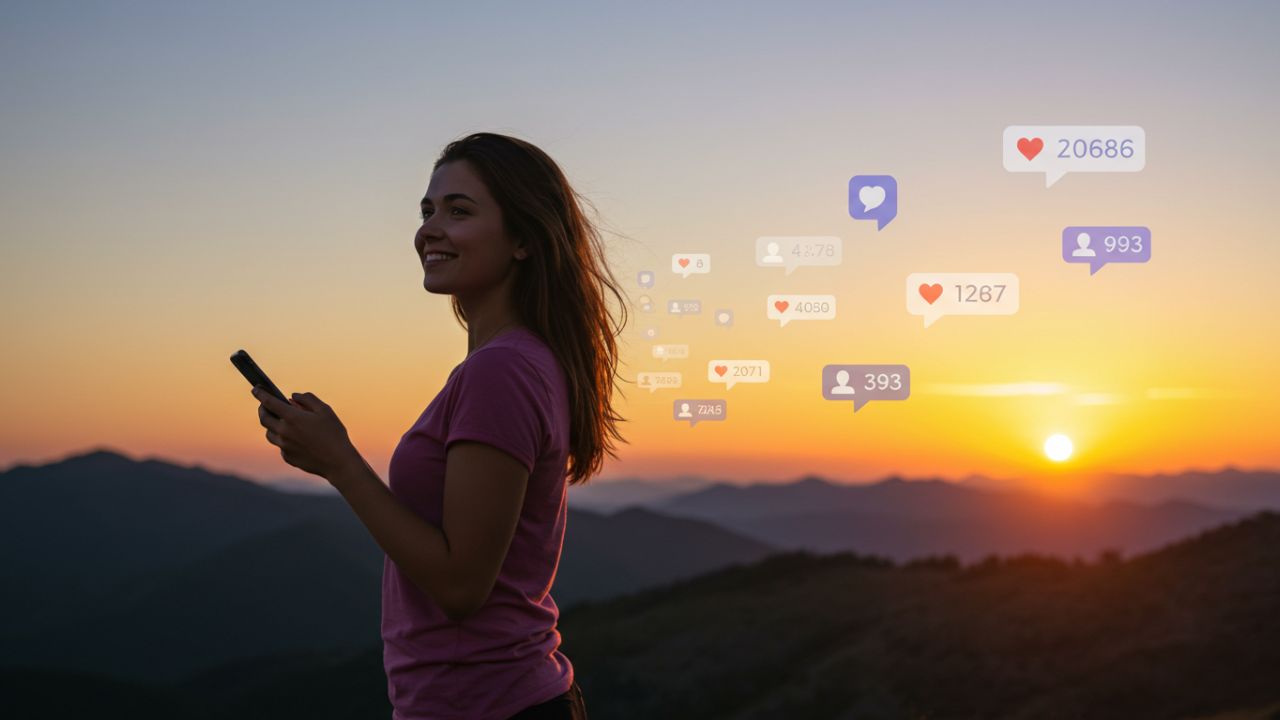In a world where scrolling through curated photos and polished highlight reels has become a daily habit, Instagram has revolutionized how we perceive ourselves and others. But with that revolution comes a psychological toll: the toxic trap of comparison. As we scroll through filtered selfies, lavish vacations, and seemingly perfect lifestyles, we may find ourselves questioning our worth, appearance, success, and happiness.
This article explores the psychological mechanics behind toxic comparison, offers tools to break free from its grip, and shares practical strategies for fostering a healthier relationship with Instagram.
Chapter 1: Understanding Toxic Comparison
What Is Toxic Comparison?
Toxic comparison is when we negatively compare ourselves to others, resulting in feelings of inadequacy, jealousy, and low self-esteem. Unlike healthy competition or aspirational comparison, toxic comparison chips away at our sense of self-worth.
Why Instagram Fuels Comparison
Instagram is a visual platform. With endless streams of polished images, it is uniquely positioned to feed comparison. Here are some key reasons:
- Curated Perfection: Users often share the best parts of their lives, leaving out the struggles and mundane.
- Filters & Editing: Augmented reality filters and editing apps make it easy to create unrealistic standards.
- Metrics of Worth: Likes, comments, and followers become proxy measures of social value.
- Endless Scrolling: The infinite feed keeps the cycle of comparison alive.
The Psychology Behind It
- Social Comparison Theory (Festinger, 1954): We evaluate our worth by comparing ourselves to others.
- Upward Comparison: Comparing ourselves to those perceived as better off often leads to feelings of inferiority.
- Downward Comparison: Comparing ourselves to those perceived as worse off may provide temporary relief but can breed arrogance or false security.
Chapter 2: Recognizing the Signs
Emotional Symptoms
- Feelings of inadequacy or failure
- Decreased self-esteem
- Anxiety or sadness after using Instagram
- Envy toward others’ lifestyles
Behavioral Symptoms
- Excessive scrolling or stalking
- Avoiding posting due to fear of judgment
- Obsessively checking likes or followers
Cognitive Symptoms
- Negative self-talk
- Ruminating over others’ achievements
- Thinking you’re not “enough”
Chapter 3: How to Break the Cycle
1. Audit Your Feed
Unfollow or mute accounts that trigger feelings of inadequacy. Curate your feed with:
- Body-positive influencers
- Mental health advocates
- Realistic lifestyle bloggers
2. Set Boundaries
- Limit Time: Use screen time settings to restrict Instagram usage.
- Designate No-Social Hours: Keep mornings and evenings free of social media.
3. Practice Mindful Scrolling
- Be aware of your emotions while browsing.
- Ask: “Is this making me feel better or worse?”
4. Celebrate Your Reality
- Write daily gratitude lists.
- Post content that reflects your authentic life.
5. Reframe Your Thinking
Replace negative thoughts with affirmations. Instead of “She’s so successful and I’m not,” try “Her success doesn’t diminish mine.”
6. Engage Purposefully
- Comment thoughtfully
- Share stories that matter to you
- Use the platform to connect, not compare
Chapter 4: Build Your Inner Confidence
1. Focus on Your Journey
- Everyone’s path is different.
- Measure growth by your own standards, not others’ milestones.
2. Invest in Self-Care
- Exercise
- Journaling
- Hobbies that bring joy
3. Therapy and Support
- Seek therapy if Instagram use is affecting mental health.
- Talk to friends about how social media makes you feel.
4. Celebrate Small Wins
- Acknowledge progress, no matter how minor.
- Use achievements to fuel motivation.
Chapter 5: Detoxing & Redefining Your Relationship with Instagram
Digital Detox Ideas
- One-day social media fasts
- Weekend detoxes
- Unplug challenges
Replace Scrolling With:
- Reading
- Drawing or writing
- Connecting in person
Redefine Your Use
- Use Instagram for inspiration, not validation.
- Share to express, not impress.
Shift the Algorithm
- Like and follow positive content
- Engage with wellness-oriented creators
Chapter 6: Embracing a Healthier Digital Life
Create Your Own Content Ethically
- Avoid excessive editing
- Be transparent about real-life struggles
- Encourage authenticity in others
Join Positive Movements
- #RealLife
- #MentalHealthAwareness
- #InstagramVsReality
Final Thoughts
Toxic comparison isn’t your fault—it’s a byproduct of a platform designed to showcase highlights. But awareness is power. By recognizing harmful patterns and cultivating conscious habits, you can transform your Instagram experience into one of empowerment rather than envy.
Take ownership of your feed, your mindset, and your worth. You are more than a like count.

Leave a Reply